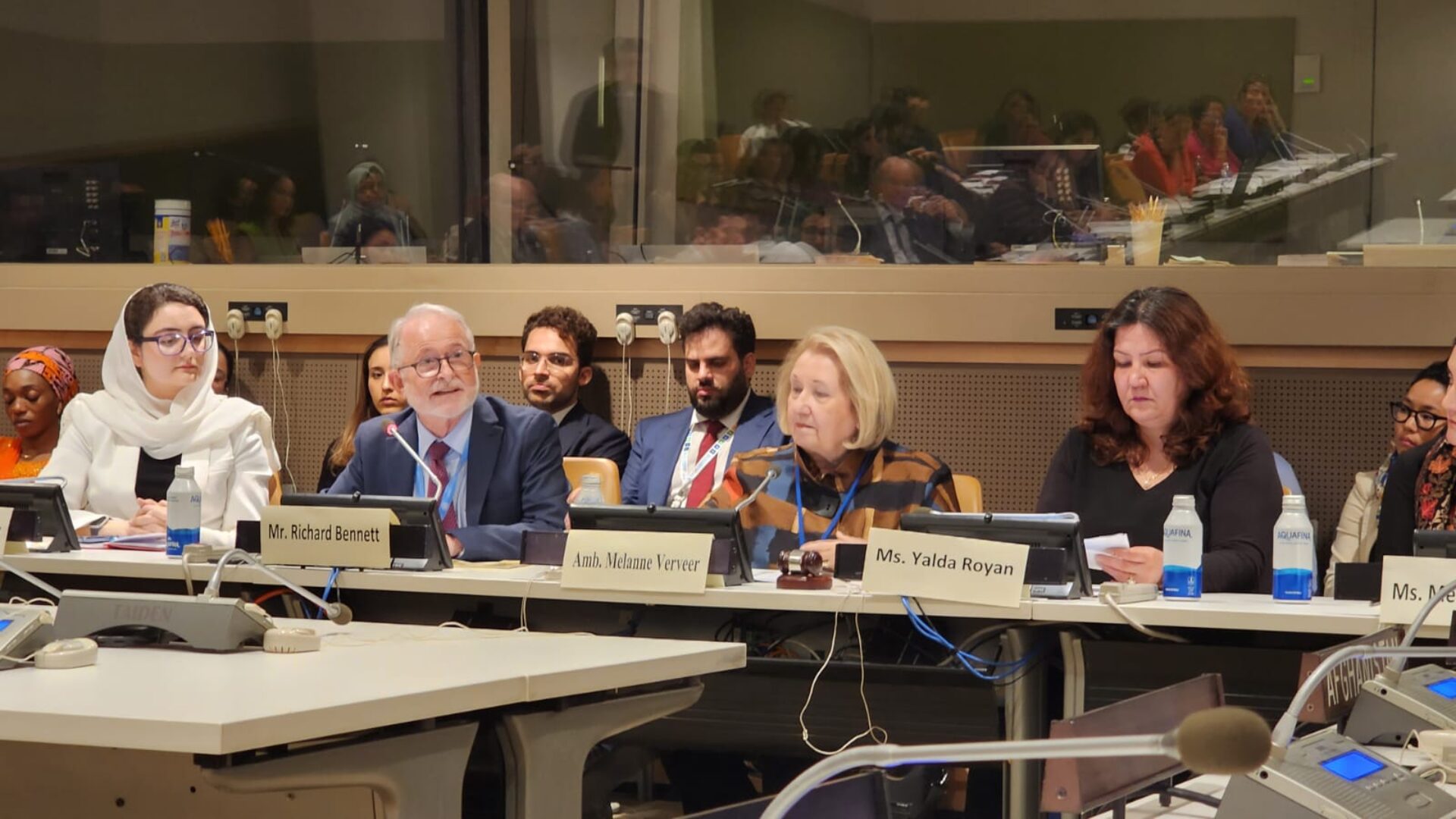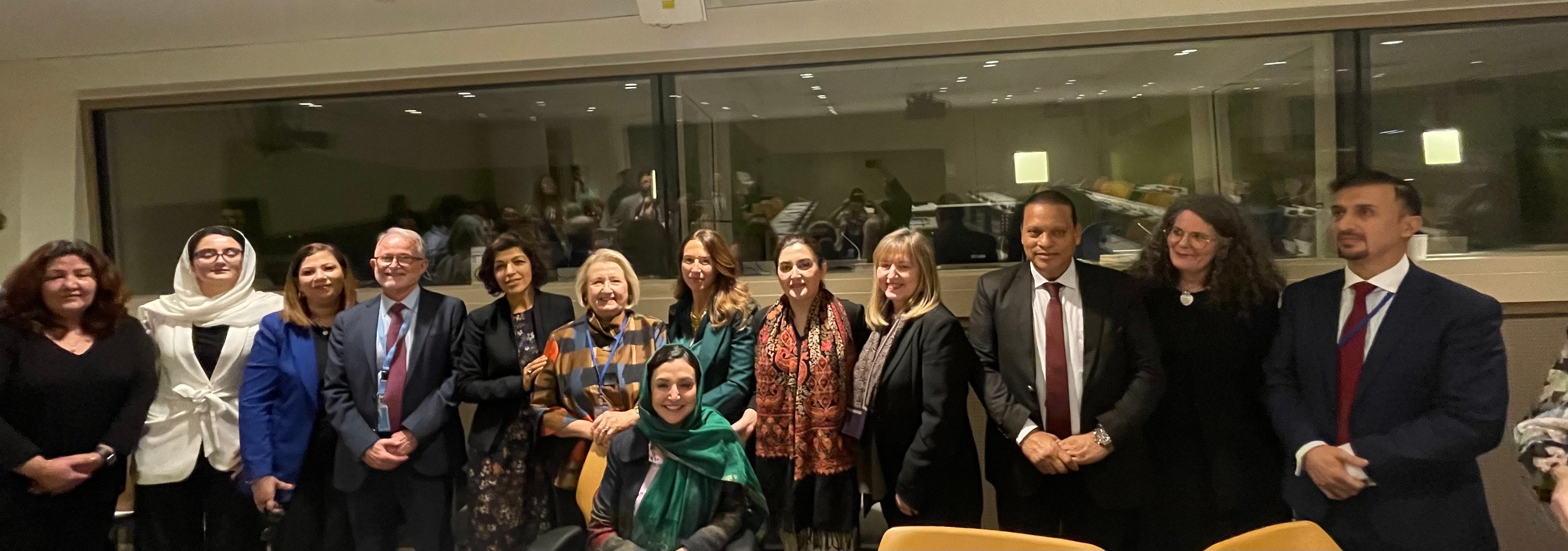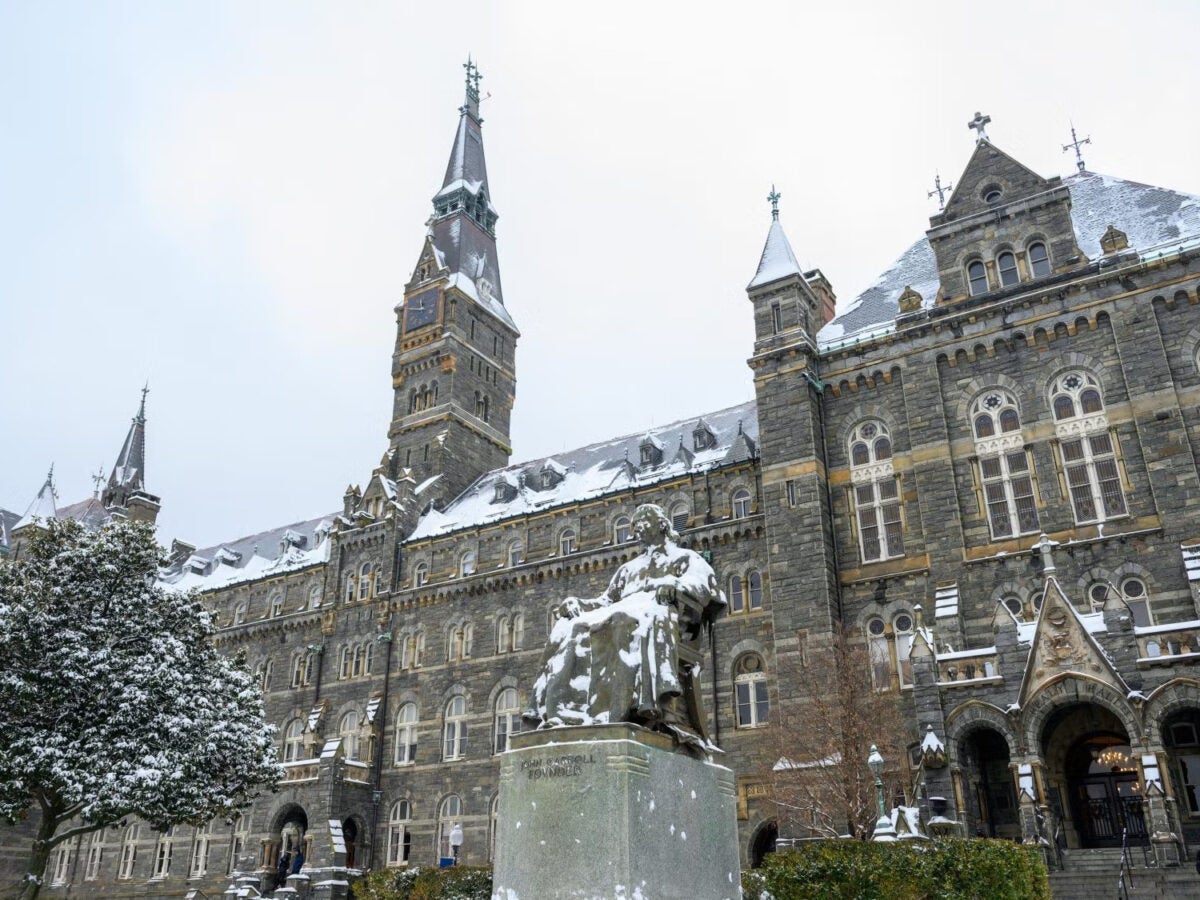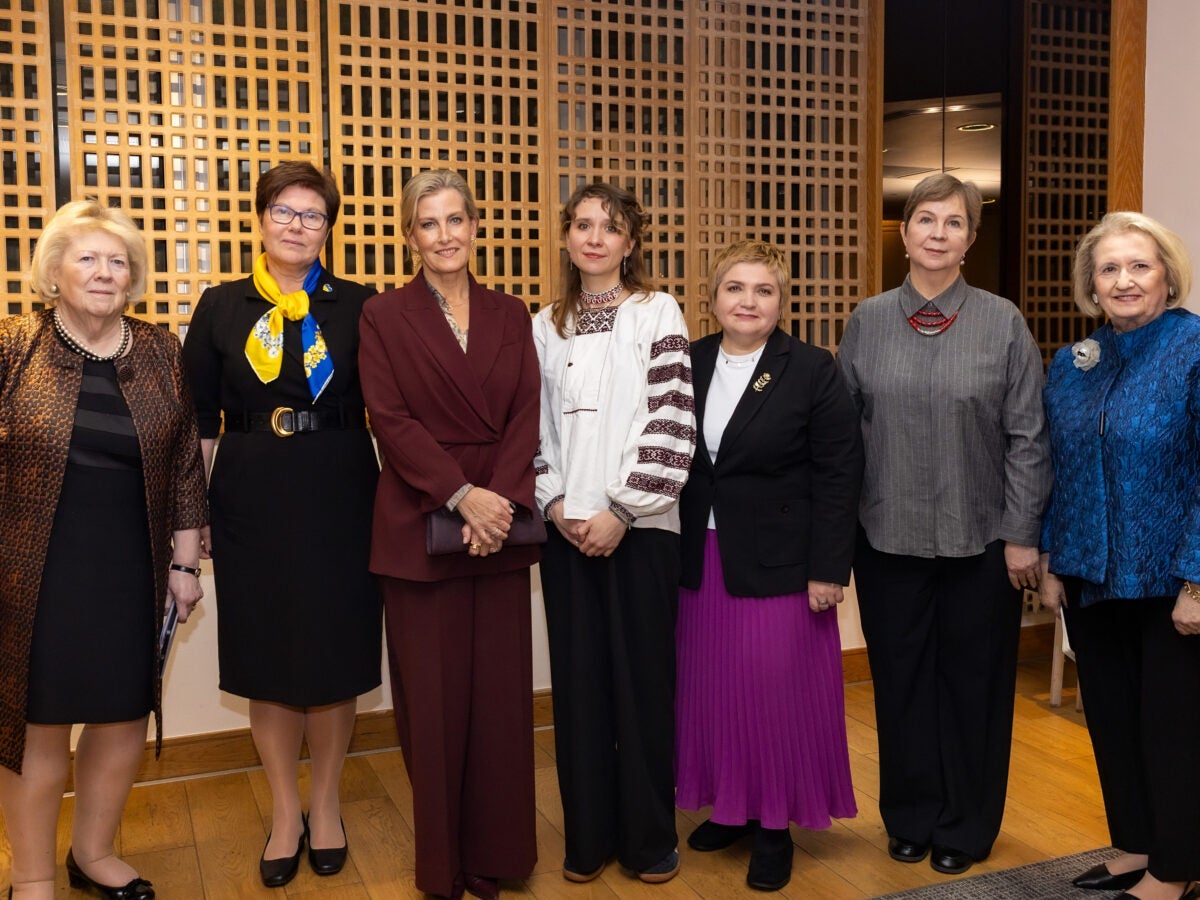GIWPS Highlights Afghanistan at UN General Assembly

The Georgetown Institute for Women, Peace and Security (GIWPS) participated in the 78th session of the United Nations General Assembly High-Level Week, an annual convening that brings together world leaders, including heads of state and government, at the United Nations headquarters in New York City.
GIWPS participated in numerous Afghanistan-related engagements and co-hosted a side event: “Combating Gender Apartheid: The situation of women and girls in Afghanistan.” The event was co-organized by Princeton University’s Afghanistan Policy Lab and the Permanent Mission of the Islamic Republic of Afghanistan to the United Nations and co-sponsored by the Permanent Missions of Malta, the Dominican Republic, and South Africa to the United Nations and GIWPS.
“Our role at the UNGA High-Level Week was to ensure that in the face of escalating gender-based discrimination and the erosion of women’s rights in Afghanistan, we must continue to amplify the voices of Afghan women and call for international action,” said GIWPS Executive Director Melanne Verveer.

Together with partners, GIWPS convened Afghan women experts, international human rights defenders, diplomats, and a special mandate-holder to address the systemic and institutionalized discrimination faced by Afghan women.
“This crisis weighs deeply on our collective conscience,” said Ambassador Adela Raz, Director of the Afghanistan Policy Lab at Princeton School of Public and International Affairs, during her opening remarks.
When asked how Human Rights Watch (HRW) sees the current situation in Afghanistan, Heather Barr, Associate Director of the Women’s Rights Division at HRW, responded, “We’ve never seen anything like it. Except once. And that once was in 1996 to 2001 when the Taliban were last in power…But that doesn’t mean that it is an isolated situation that has no bearing on the rest of the world. In fact, the opposite is true. What happens in Afghanistan, and how the international community responds to that situation—or doesn’t—has profound implications for women’s rights globally.”
The distinctive and deeply troubling pattern of the Taliban’s systematic oppression of Afghan women and girls demands a more precise terminology to capture the gravity of the situation. The current framework of international human rights law falls short in encapsulating the extent of the atrocities unfolding in Afghanistan. This glaring gap in terminology has led numerous advocates and experts to advocate for the use of “gender apartheid” as a more fitting descriptor for the dire circumstances prevailing in the region.
Afghan human rights activist Metra Mehran emphasized the importance of collective action against gender apartheid.
“Together, as a global community, we must stand against gender apartheid and work tirelessly to ensure that the women of Afghanistan, and women everywhere, can reclaim their rightful place in society,” she said.
Zane Dangor, Director-General of the Department of International Relations and Cooperation of South Africa, speaking on behalf of the Permanent Mission of South Africa to the United Nations, posed the question: “The crime of apartheid and perhaps gender apartheid can be found in various parts of international law: How do we use international law to hold the perpetrators accountable?”
During the event, impassioned participants fervently urged for a united front in combating the Taliban’s harsh and draconian policies that disproportionately target women and girls, while also emphasizing the pressing need for accountability. They shared their recommendations for steps that the international community can take to improve the situation of Afghan women and girls living under the Taliban and explored how international mechanisms can promote accountability in relation to gender apartheid.
“There is a deep sentiment of abandonment and palpable frustration at the international community’s betrayal of Afghan women and girls, which can only be bridged through concrete actions, not only declarations of sympathy or condemnation,” said UN Special Rapporteur for the situation of human rights in Afghanistan Richard Bennett.
Speakers underscored that it is imperative to utilize international legal frameworks like the International Criminal Court, International Court of Justice, the Convention on the Elimination of All Forms of Discrimination Against Women (CEDAW) to recognize gender apartheid as a crime under international law and take action to prevent further human rights violations against Afghan women and girls. They also called for meaningful participation of Afghan women in all peace and security efforts, requiring concerted will and action from international actors.
View a recording of the event here.
Explore More

End of Year Reflections
This year has been particularly challenging for peace around the world, with…

“No Amnesty, No Silence:” Ukrainian Women Urge Accountability for War-Time Sexual Violence
Last week, the Georgetown Institute for Women, Peace and Security (GIWPS) brought…
